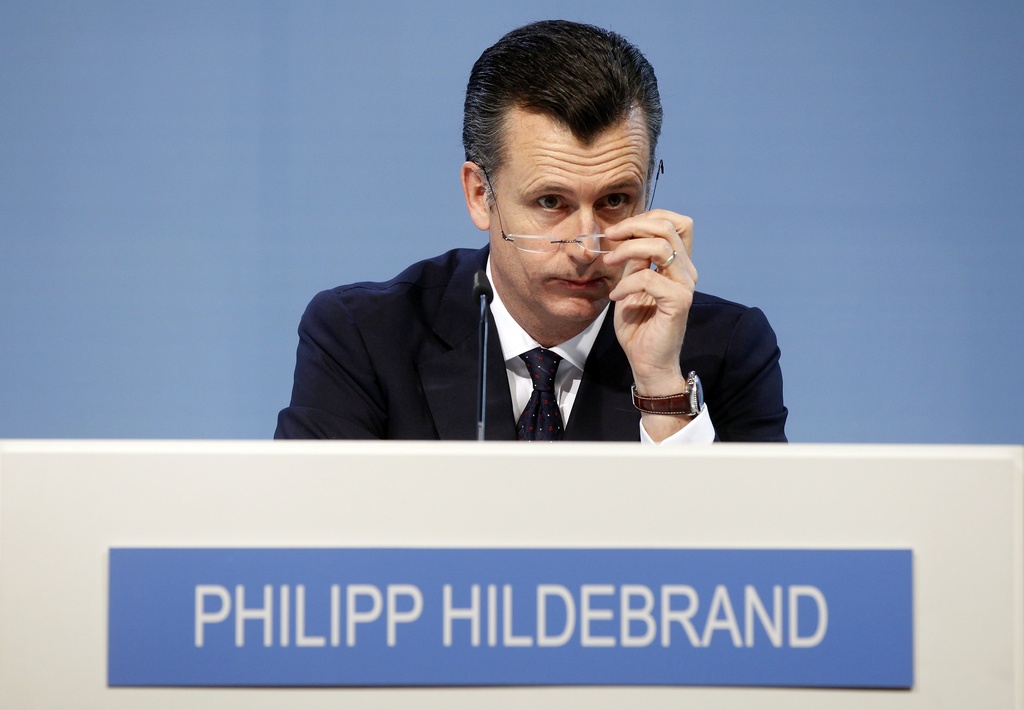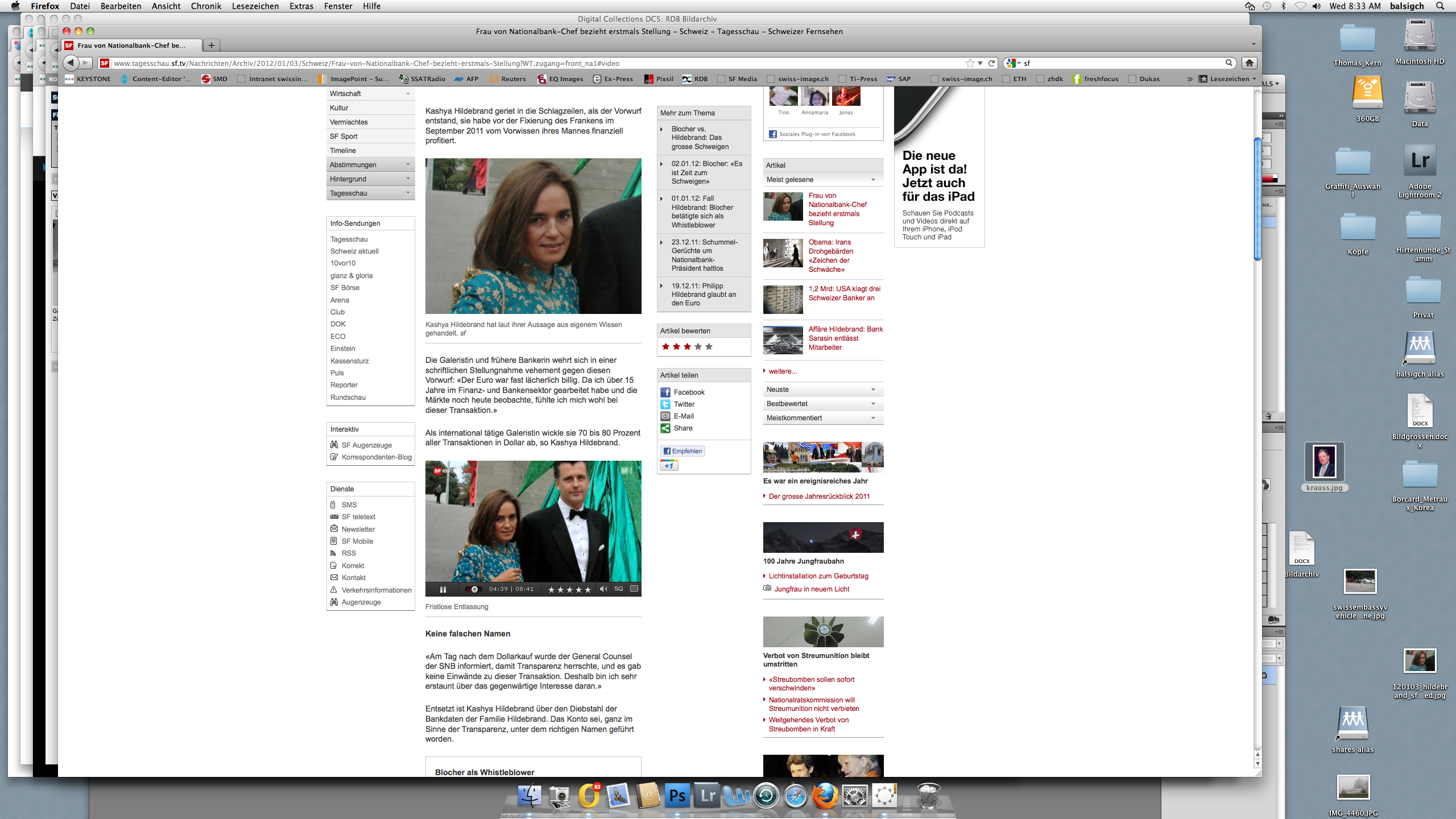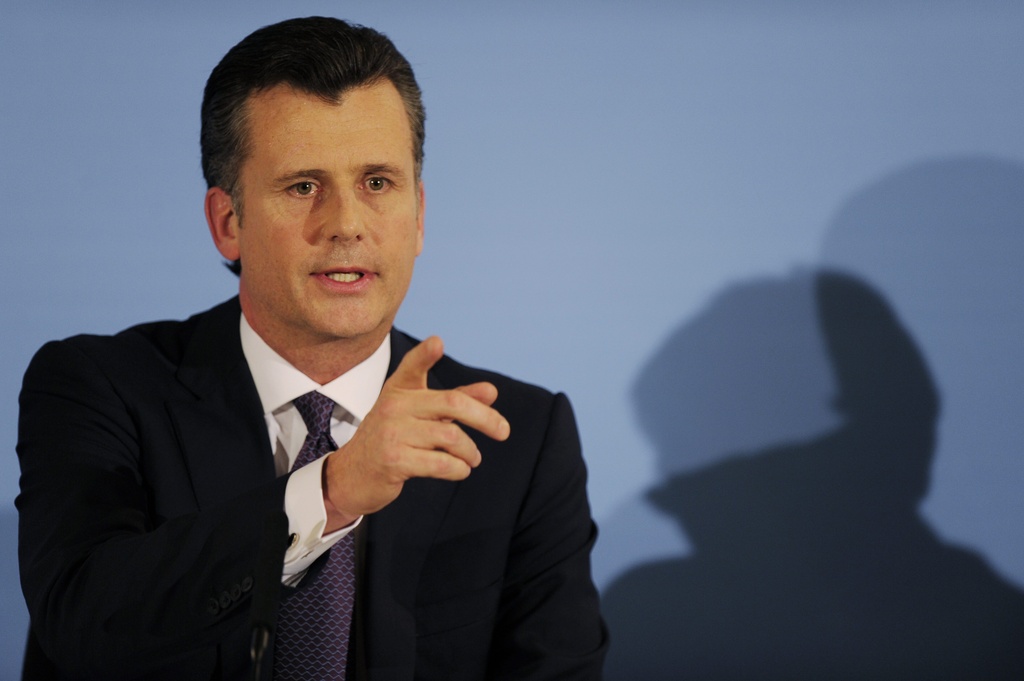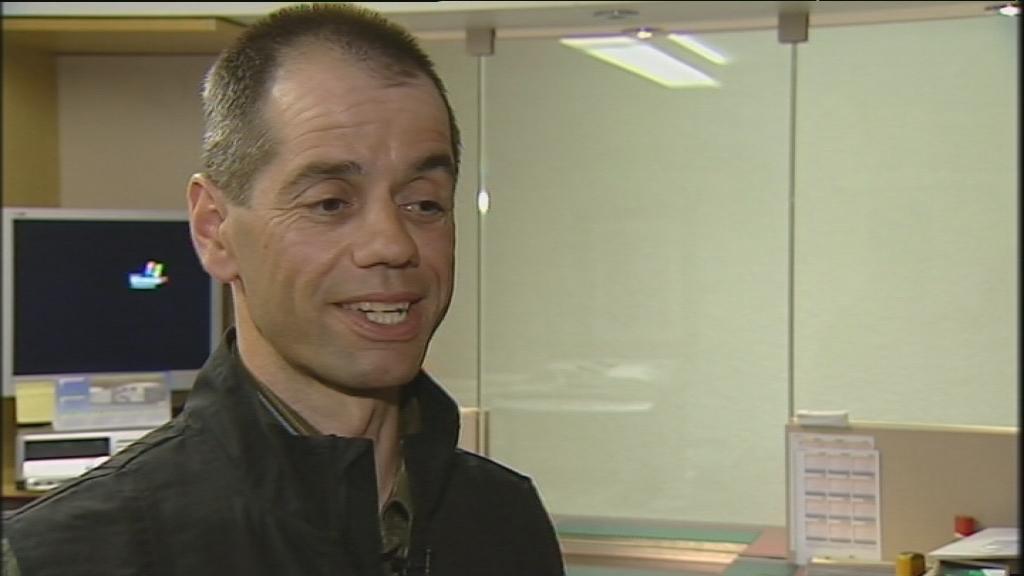National bank chief convinces Swiss newspapers

Swiss National Bank chairman Philipp Hildebrand, caught up in a private currency dealing scandal, has received a sympathetic ear from the country’s editorialists.
But they demanded clarifications to unanswered questions, a day after Hildebrand dismissed suggestions he should resign, saying his only mistake was to let his American wife conduct a particularly sensitive transaction from their joint account.
The Neue Zürcher Zeitung (NZZ) said Hildebrand had to “at least try to provide evidence [that he’s] beyond all suspicion in this affair so the matter can be laid to rest”.
Hildebrand acknowledged that three dollar deals totalling more than $2 million (SFr1.9 million) – the most sensitive of which he said was conducted by his wife, a former currency trader now running an art gallery in Zurich – could be misinterpreted and damage his reputation.
He said the only charge he would level against himself is that he failed to reverse his wife’s hefty dollar purchase on August 15. Asked why he didn’t do so, he responded: “Let’s just say my wife has a strong personality.”
The NZZ wanted to see the email published that ordered the dollar purchase, adding that Hildebrand, who appeared on the front page of all Swiss papers in addition to that of the Financial Times, also had to “explain the coincidence that the very same day he had bought dollars for his daughter’s account”.
Open questions
“Many open questions remain,” agreed the Basler Zeitung, which, despite changing its mind about calling for Hildebrand’s resignation, still believed it wasn’t right for a national bank chairman to play the foreign exchange markets when he could influence rates.
“Such deals damage the standing and reputation of the Swiss National Bank,” it said.
Hildebrand insisted he had followed the central bank’s internal rules when he and his wife ordered US dollar swaps at the same time as he was spearheading efforts to lower the value of the Swiss franc.
Both the central bank and the Swiss government have publicly backed Hildebrand, stating that an external audit in December had cleared him of wrongdoing.
Nevertheless, the Südostschweiz found it unacceptable “that someone whose interest rate and monetary decisions influence the Swiss economy speculates with foreign currency. But to get this basic principle across requires neither a resignation nor a parliamentary enquiry, but the political will to create binding rules”.
The Tages-Anzeiger in Zurich also called for “sharper governance”.
“But if nothing else comes to light, Switzerland would do well not to lose this individual,” it said. Hildebrand, it added, had many qualities “and since yesterday self-criticism is one of them”.
Hildebrand told reporters he had donated all profits made from his currency deals to a Swiss charity and would discuss with the central bank’s board how to improve its rules for officials’ private business deals above SFr20,000. But he said the Swiss central bank’s rules already meet European standards.
Germany’s influential Handelsblatt newspaper questioned this. “If Hildebrand had been the guardian of the euro, and not the franc, then the European Central Bank’s rules would have given the 48-year-old no other option but to resign,” the paper wrote.
No need to resign
But Hildebrand appears to have convinced the majority of Swiss commentators.
“We have no reason to doubt his sincerity,” wrote 24 Heures in Lausanne. “Ultimately, the events will result in a tightening of the code of conduct for the Swiss National Bank and one can only welcome that.”
“He neither lied nor cheated,” added the Quotidien Jurassien, which believed, however, that a person in Hildebrand’s position should have stayed well clear of any involvement in the markets in such a “turbulent context”.
The paper said that for the moment Hildebrand didn’t need to resign, although he had been weakened. His mistake, it added, had been leaving his wife to her own devices.
For its part, La Liberté in Fribourg refused to believe that the couple hadn’t discussed such a significant deal.
“Political error”
It said that although the transactions hadn’t broken any national bank rules, they were not only morally dodgy but also a political error.
“He knew he had been in the crosshairs of the Swiss People’s Party for months and as a result should have avoided taking even the slightest risk,” it said.
The fuss was triggered when details of Hildebrand’s private account at Bank Sarasin were leaked to a lawyer close to the rightwing People’s Party. A criminal investigation is underway.
The People’s Party strongman, Christoph Blocher, known for his opposition to Hildebrand’s financial policy, announced he would give a news conference on Friday.
The leader writer of 24 Heures criticised those who “hadn’t hesitated to foment a plot likely to weaken the country’s stability” and who had tried to “stab” Hildebrand and jeopardise the institutions which they boasted of defending.
“One has to know to leave the table when hatred and resentment come before serious thought. Christoph Blocher should now think about that,” it concluded.
On August 15, 2011, SFr500,000 would have bought $642,211.
At midday on September 6, the day the SNB announced the minimum franc-euro exchange rate, $642,211 would have bought SFr505,497.
The following day, after the announcement, the same amount would have bought SFr528,951.
The franc value climbed during the month. At its highest point on October 10 $642,211 would
have bought SFr595,169.
The SNB has exclusive rights to print money in Switzerland and is charged with ensuring price stability.
It has the legal status of a joint stock company, with Switzerland’s 26 cantons each holding a significant share in the bank.
The SNB is obliged to hand over two-thirds of its excess profits to the cantons each year and a further third to the government.
In the 1970s, the SNB intervened in the currency markets to stop the franc gaining in value against the German Deutschmark.
The operation was considered a success as it halted the franc’s rise, but it resulted in rampant inflation in the early 1980s.
The SNB was reorganised in the 1990s to turn it into a more streamlined organisation. The central bank’s independence was also written into the Swiss constitution, with the changed version coming into force in 2000 after a referendum.
The SNB’s independence was reiterated in the revised National Bank Act in 2004. At the same time, the SNB’s supervisory council was given greater strength to oversee operational standards.

In compliance with the JTI standards
More: SWI swissinfo.ch certified by the Journalism Trust Initiative





You can find an overview of ongoing debates with our journalists here. Please join us!
If you want to start a conversation about a topic raised in this article or want to report factual errors, email us at english@swissinfo.ch.